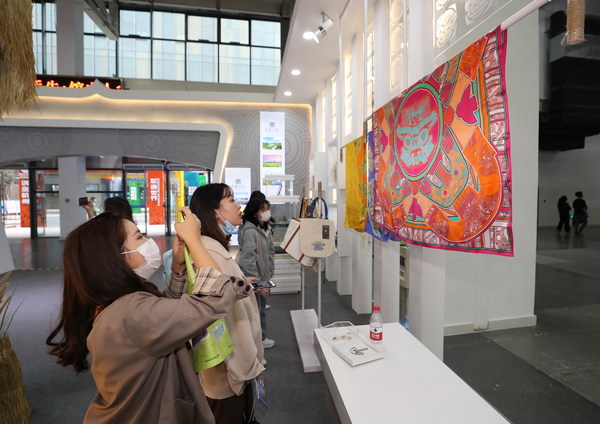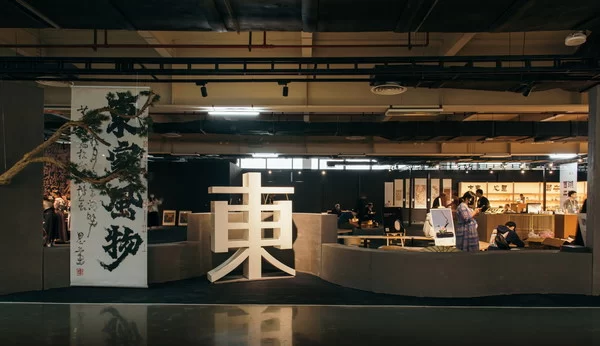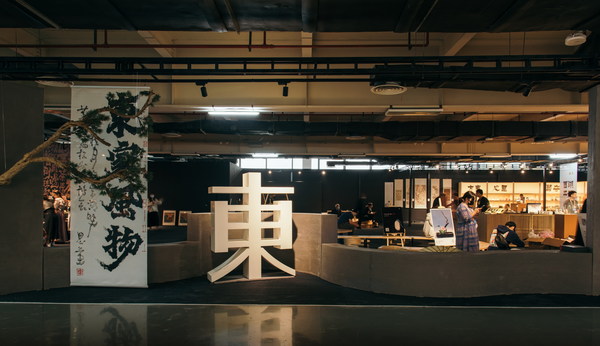HANGZHOU, China, Nov. 6, 2020 — The 14th Hangzhou Cultural and Creative Industry Expo was held in Hangzhou, capital of Zhejiang Province in southeastern China, from Oct. 29 to Nov. 1. The expo attracted more than 4,000 cultural institutions and enterprises from more than 60 countries and regions to participate online and offline. The total number of participating brands increased by 60% compared with the previous expo. The exhibition area of overseas brands remained at 40% of the total exhibition area. During the exhibition, the main venue received more than 60,000 visitors, the two online sub-venues received more than 930 million clicks, and completed on-site transactions and project contracts worth 2.19 billion yuan.
In the past 14 years, amid new culture, new consumption and new life, the expo has not only become one of China’s four major cultural exhibition activities, but also Hangzhou’s cultural landmark and an important platform for building an international cultural and creative center.
Online expo stays open throughout the year
With the rapid development of China’s new economy, more and more consumers are using the Internet to communicate, and online shopping has become a trend. This year’s expo also features two online sub-venues, allowing citizens to visit the exhibition without leaving their homes.
As one of the online sub-venues of the expo, Dongjia App is an online shopping platform specially set up for excellent traditional craftsmen at home and abroad. According to Meng Wenbo, president of the app, more than 2,000 exhibitors at home and abroad have "transferred" their offline works to the app, presenting their works in a three-dimensional and diversified manner by means of pictures, videos and live broadcasts. Alexandre Turpault textiles from France, Knit Planet children’s clothing from the UK, Festka bikes from the Czech Republic… Visitors can find all of these global creative products on the platform, and place an order with a few clicks and have them delivered to their home.
"The expo used to be held offline in a relatively short period. With the digitalization of the event, the online venue has opened up more possibilities for people to browse, communicate and buy through mobile phones anytime and anywhere, creating a year-long 24-hour event," Meng added.
Cultural and creative products gain life as part of life
The online expo which enables easy purchase and delivery makes cultural and creative products more accessible. However, Meng believes that the more charming part of Hangzhou’s cultural industry lies in the fact that many designers’ creative works are based on integrating the essence of eastern traditional culture into the daily life of modern people.
Born in 1990, Liu Weixue is a paper umbrella designer who focuses on the innovation of umbrella surface. "Only by making innovations based on a full understanding of the technological core of the past system can traditional techniques be better protected and passed on." In order to make paper umbrella technology with new vitality, Liu is trying to develop different derivatives of paper umbrella.
Yao Yuting, who grew up in a silk workshop, is the inheritor of the intangible cultural heritage of Hangzhou satin (a thick, smooth and shiny silk fabric made in Hangzhou).
"I hope to make Hangzhou satin closer to life. After all, Hangzhou satin has a history of thousands of years. To better inherit and develop it, more people need to know it, understand it and feel it," she said. Thanks to her efforts, the products produced by the weaving factory now combine silk with landscapes, home decorations, architecture and other elements.
An expo of insights to power industrial growth
In 2018, the expo proposed the goal of becoming an insightful event. This not only means a display of global creative products, but also deep exchanges in the global cultural industry to push cultural and creative innovation to a new level.
The expo drew hundreds of experts and scholars from well-known universities at home and abroad such as German University of Lueneburg, British Schumacher College, Tsinghua University and Zhejiang University. Meanwhile, more than 100 well-known cultural and creative institutions at home and abroad such as Alibaba gathered to hold more than 20 professional activities such as an industry summit and the annual industry index release to jointly discuss the latest trends in the development of cultural industries.
After 14 years of development, the Hangzhou Cultural and Creative Industry Expo not only gathers creative products with traditional oriental aesthetic flavor and modern life elements, but also attracts more and more overseas established cultural and creative products to enter the Chinese market and innovate local consumption patterns. Just as Hangzhou, a traditional ancient city in the south of the Yangtze River, has become a modern smart city, the expo has never failed to display new vitality and vigor.
Image Attachments Links:
Link: http://asianetnews.net/view-attachment?attach-id=375647
Caption: The 14th Hangzhou Cultural and Creative Industry Expo
Link: http://asianetnews.net/view-attachment?attach-id=375656
Caption: Visitors at the 14th Hangzhou Cultural and Creative Industry Expo








